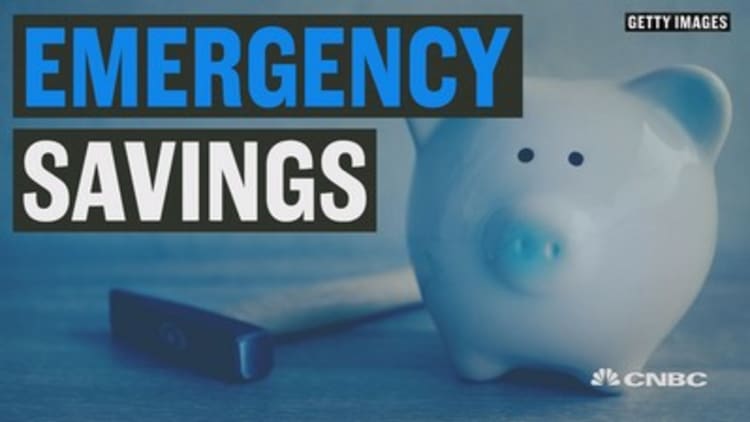
Many Americans struggle when it comes to building up sufficient savings, and understandably so.
Nearly half, or 48 percent, said their expenses are equal to or greater than their income, causing them a significant amount of financial stress, according to a new report by the Center for Financial Services Innovation, or CFSI, a non-profit aimed at funding projects that could improve consumers' financial health.
Thanks to a growing number of Americans working freelance, part-time or with side jobs, "incomes have become increasingly volatile," said Jennifer Tescher, the founder and CEO of CFSI.
From 2014 to 2015, about a third of U.S. households had volatile income — a gain or loss of at least 25 percent from one year to the next, according to a 2015 survey from The Pew Charitable Trusts. The median income gain was $20,500, and the median income loss was $25,000. (See chart below.)
"Income volatility just makes it hard for families to plan and budget," Erin Currier, director of financial security and mobility for Pew, told reporters on a press call about the report.
In fact, nearly half, or 46 percent, of employed Americans said they usually run out of money between paychecks, according to a separate report by SunTrust Bank.
Adding to their concerns about money, a one-quarter of Americans said they have too much debt, according to the CFSI report, with almost all of those people saying that they feel financially stressed. The CFSI polled about 5,000 adults in March.
"Income volatility and mounting debt are two of the biggest stressors that work against the financial health of many Americans," said Tescher of CFSI. "Their financial health depends on climbing out of debt, planning for the future and living within their means when possible."
"This is not a small problem, this is a big, national challenge," she added.
This is not a small problem, this is a big, national challengeJennifer Tescherfounder and CEO of CFSI
Tescher recommends using money management apps, which can help schedule the best time to pay bills, and setting up autopay, as well as apps that can help strategize the best way to pay down debts in order to reduce the amount of interest owed.
The consequences of not doing anything could be dire. For example, higher financial stress levels have worrisome health implications, according to a report by The American Psychological Association titled "Paying With Our Health." Consequences can include a higher likelihood to overeat, drink or smoke. (The American Psychological Association also provides tips for managing financial stress.)


